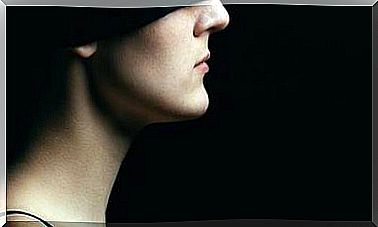Test Anxiety And Fear: How To Recognize And Deal With The Problem
Many young people experience cognitive, affective and physiological symptoms when facing an academic test. 94% of students with high test anxiety are susceptible to a psychological disorder. How to detect this phobia and what to do?

- What’s behind the exam panic
- Consequences of stress before academic tests
- Symptoms of test anxiety
- How to overcome the fear of exams
For more than a whopping 70 years, Psychologists have known that test anxiety emerges strongly in students faced with evaluation situations in which their performance is going to be judged and that is interpreted as highly threatening.
This is what happens to some students who face the selectivity exams or those who face university evaluations. How to recognize test anxiety and what can be done to treat the problem?
What’s behind the exam panic
This feeling of threat comes from the fact that the person being examined considers that their sense of self-esteem and personal worth may be compromised for two reasons:
- They feel affected by the fear of being judged negatively by those who are important to them: their teachers, classmates and parents
- Fear to fail. For not being able to achieve, if their results are bad, all their educational and professional aspirations. They feel the weight of the fear of the failure of their intimate desires and the acid aftertaste of the disappointment of those they love most. They are aware that their poor results can affect the design of their life trajectory and they carry the burden of this responsibility. In fact, test anxiety is known to be especially relevant for college students.
Consequences of stress before academic tests
Psychologists know that a moderate increase in anxiety helps students increase effort and focus their attention on the test. An excessive increase, on the other hand, can derail a good performance.
However, despite not being a mental health condition, it is important that test anxiety is not trivialized since it is known that test pressure is one of the greatest stressors among children and young people. When it emerges in high levels it affects sleep, it causes the triggering of anxiety attacks, depression and eating disorders.
In fact, a 2014 UK study by Herzer found that 94% of students with high test anxiety met clinical criteria for at least one psychological disorder, the most common being social anxiety.
Symptoms of test anxiety
What happens on the inside when a person with high anxiety is faced with an assessment situation? For this we kindly asked one of our students to describe in detail what thoughts, feelings and physical sensations she experienced.
María walked down the wide corridor of her University, fearful that the usual would happen: the lump in her throat, the pasty saliva in her mouth, and her shortness of breath. He wanted to abstract himself from the intensity of his physical sensations and for this he began his sacred ritual for exams.
He focused all the attention on carefully placing his pencils arranged by colors, he made sure that the stamp of the Virgen del Carmen that his grandmother had given him was still in his pocket and he placed himself in the usual place next to the door ready to face your final and definitive exam. That would calm her down, he thought.
However, as he watched the teacher’s aide parsimoniously distributing the exams around the lecture hall, a full-blown barrage of disturbing negative thoughts began:
“ I am going to suspend. I’m sure this time I forget something important as always. It’s just that I’m a mess. Everyone is going to do better than me. She looks at Miriam there in the distance, concentrating, she seems to know all the answers beforehand. But what am I doing here at the University? Let’s see, focus Maria, you’re getting nervous. Start with the first question. When the notes come out they will see that it should not have happened and surely my friends see that I am going to be in last place. I’m going to be horribly embarrassed. My God! What will be of me? Where will I work? My head is going to explode, it starts to hurt and my hand is shaking. Come on come on! Take it easy! Go back to the first question, let’s see how you can answer it. … ”
It is important to be able to identify when we are feeling anxiety. This can be expressed through these three spheres:
- Cognitive symptoms (cognitive sphere). Like Maria, it’s easy to feel overwhelmed by your own situation and think you’ve lost control. When this happens it is easy to panic, get overwhelmed and think that you may “go blank” and be unable to remember any of the content you have learned. The negative messages you send to yourself will be corroding your motivation for success. And, the automatic and stereotyped nature of your thoughts, rather than controlling your anxiety level, the only thing that produced was an elevation of it.
- Emotional symptoms (affective sphere). You can feel the backlash of panic, fear, and anxiety over the actual execution of the test and the consequences of potential failure. In Maria it was easily observable as she was trapped in the endless wheel of her thoughts about what was happening in her future, in anticipation of a disastrous life….
- Physical symptoms (physiological sphere). You can easily feel discomfort in your stomach, your heart racing like a runaway locomotive, the feeling that your legs are shaky or jelly-like, suffer from tremors or excessive sweating before and after the exam. All this is also an indication that your Autonomous Nervous System is seriously activated.
How to overcome the fear of exams
Given that we know that high levels of test anxiety have important consequences not only for confidence in academic performance but also for the emotional well-being of our minors, it is essential that psychologists who work hard within the educational system help these students through an adequate evaluation of their difficulties that allow assigning them to the specific program for each one. These programs can be very varied.
We will mention some of them:
- Study habits improvement programs .
- Those based on the teaching of relaxation techniques through training in proper breathing, mindfulness exercises that promote emotional regulation and focus attention on the present. All designed to regain the student a feeling of internal calm and serenity.
- Training in alternative forms of behavior before an exam.
- It helps them explore and modify the messages they send to themselves.
- Innovative techniques such as the one designed by Ramirez & Beilock in 2011, which consists of asking students to write down their thoughts and feelings immediately before taking the exam. The main goal is to help you keep worrying thoughts “out of your system” so that it does not interfere with your performance. It seems that it has offered bright and encouraging results, especially with generally anxious students and with depressive symptoms and that it helped them to significantly improve their results.









